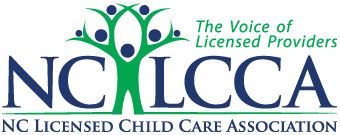What is NCLCCA Talking about with State Leaders & Legislators?
Even though state legislators are not currently meeting in Raleigh to conduct business of the state – primarily, negotiating and passing a new state budget, NCLCCA’s lobbyist and volunteer advocates continue to reach out to our elected lawmakers about the most pressing challenges for licensed child care providers. State legislators are holding periodic committee meetings on various topics that bring them to the state’s capital where we try to secure time with them before and after their committees’ work. And we also meet with key legislators when they’re home in their legislative districts. Another opportunity to advocate for NCLCCA members is meetings of the Governor’s Task Force on Child Care and Early Education, which resume this month after a holiday break.
What topics, challenges and potential solutions are NCLCCA raising with state leaders and legislators ahead of their next working session? – We’re focused on topics and challenges surfaced and prioritized by our members, including the following:
- Reimbursement rate increases for licensed programs that serve subsidy eligible families
- $80 million in proposed House and Senate budgets would raise rates from the 2021 market rate survey (MRS) to the 2023 MRS.
- $21 million in additional funding would set a new rate floor (minimum) for infants and toddlers, which would help address the extreme shortage of infant classrooms and slots and sustain high-quality licensed providers across the state, particularly in rural and other lower-income communities.
- Funding for reduced-cost child care for licensed child care teachers
- Legislation still under consideration that would appropriate $15 million in additional funding for increased behavioral/mental health supports for licensed child care staff and children in care who need them
- Legislative actions that would help address access and affordability challenges licensed child care providers are experiencing related to liability insurance
- Potential property tax relief for licensed child care centers and family child care homes (Both the House and Senate have announced committees or “working groups” on property reductions and reforms.)
- Additional workforce development pathways to produce more Lead Teachers, including reinstating the “NC Early Childhood Equivalency Exam”
When will state legislators return to work on a budget and other state business and issues? –
Technically, state legislators have their next meeting date in Raleigh set for March 10, in Senate Joint Resolution 772. However, it’s unclear whether the full body will actually meet and conduct work. The resolution includes monthly meeting dates that previously have come and gone without legislators holding any floor debates or votes. There is some hope and speculation that the March 10 scheduled meeting will be different – even though it’s only one day – because it lands after North Carolina’s primary elections on March 3. (Some political observers believe legislators may be more willing to debate controversial issues and resume work on a budget with the primary elections in the rear-view window.)
After March 10, there’s another one-day session currently scheduled for April 7. After that, April 21 should mark the official start of the NC General Assembly’s 2026 “short session” wherein they will have until June 30 (little more than two months) to try to pass a new budget bill for the second year of the state’s 2025-2027 budget biennium. (They failed to pass a new two-year state budget last year, during the first year of the biennium.)
Let us hear from you! – NCLCCA is in the process of evaluating our 2025 policy agenda and making adjustments for the 2026 short session (additions, updates, deletions). Review the list of discussion items included in this article and think about your most pressing challenges right now and let us hear from you! If what you need most or what keeps you awake at night is not already on our list, tell us about it in an email to advocacy@nclcca.org. As always, we will keep our members and advocates updated on the issues that most to them.
Early Voting begins for NC Primary Elections
Early voting for North Carolina’s 2026 primary elections began this week on Feb. 12, and runs through the end of the month (Feb. 28). Voters who are not already registered will have the opportunity to do so at polling sites during the early-voting period. NC voters registered as a Democrat or Republican may only vote in their party’s primary; however, voters registered as “unaffiliated” may choose which primary the want to vote in. More information about early-voting in the primary elections, including local early-voting sites and schedules, can be found on the State Board of Elections website HERE.
New ReadyNation Report Says Child Care Crisis Costs U.S. Economy $172 Billion Each Year!
ReadyNation – a nonpartisan organization of business leaders – released a new report this week that totals the cost of America’s child care crisis to our nation’s economy at more than $172 billion annually. According to the report, families lose an average of $6,980 per working parent each year, primarily due to reduced earnings, totaling roughly $134 billion a year. Additionally, businesses lose an average of $1,970 per working parent annually from management challenges and lost productivity, amounting to about $38 billion.
This year’s ReadyNation report also breaks down the economic impact of the ongoing child care crisis by state. The annual economic impact in North Carolina is $5 billion, according to the report, which can be accessed HERE.

